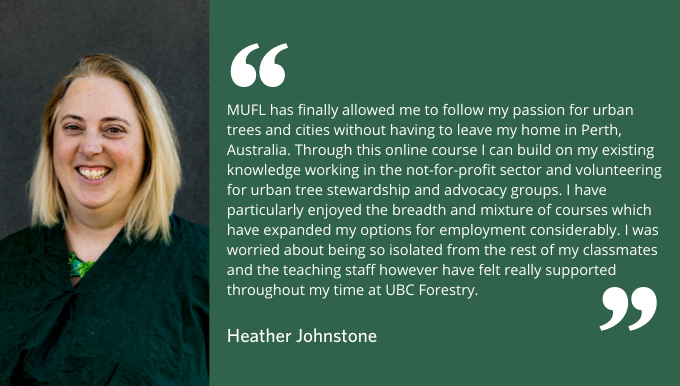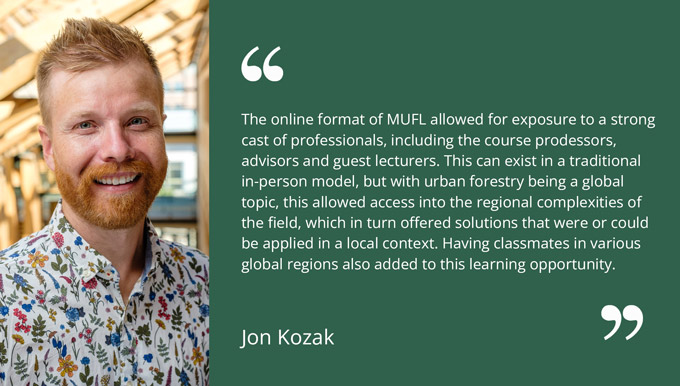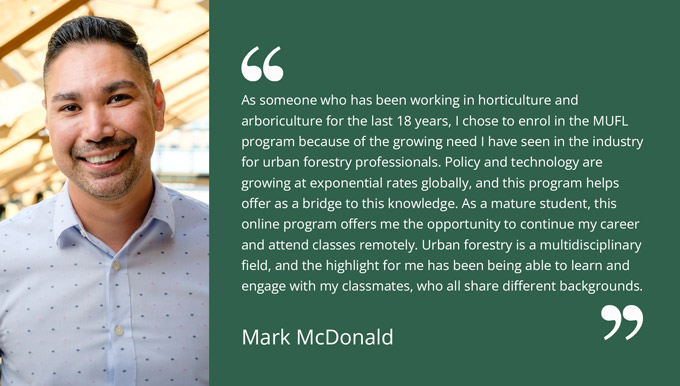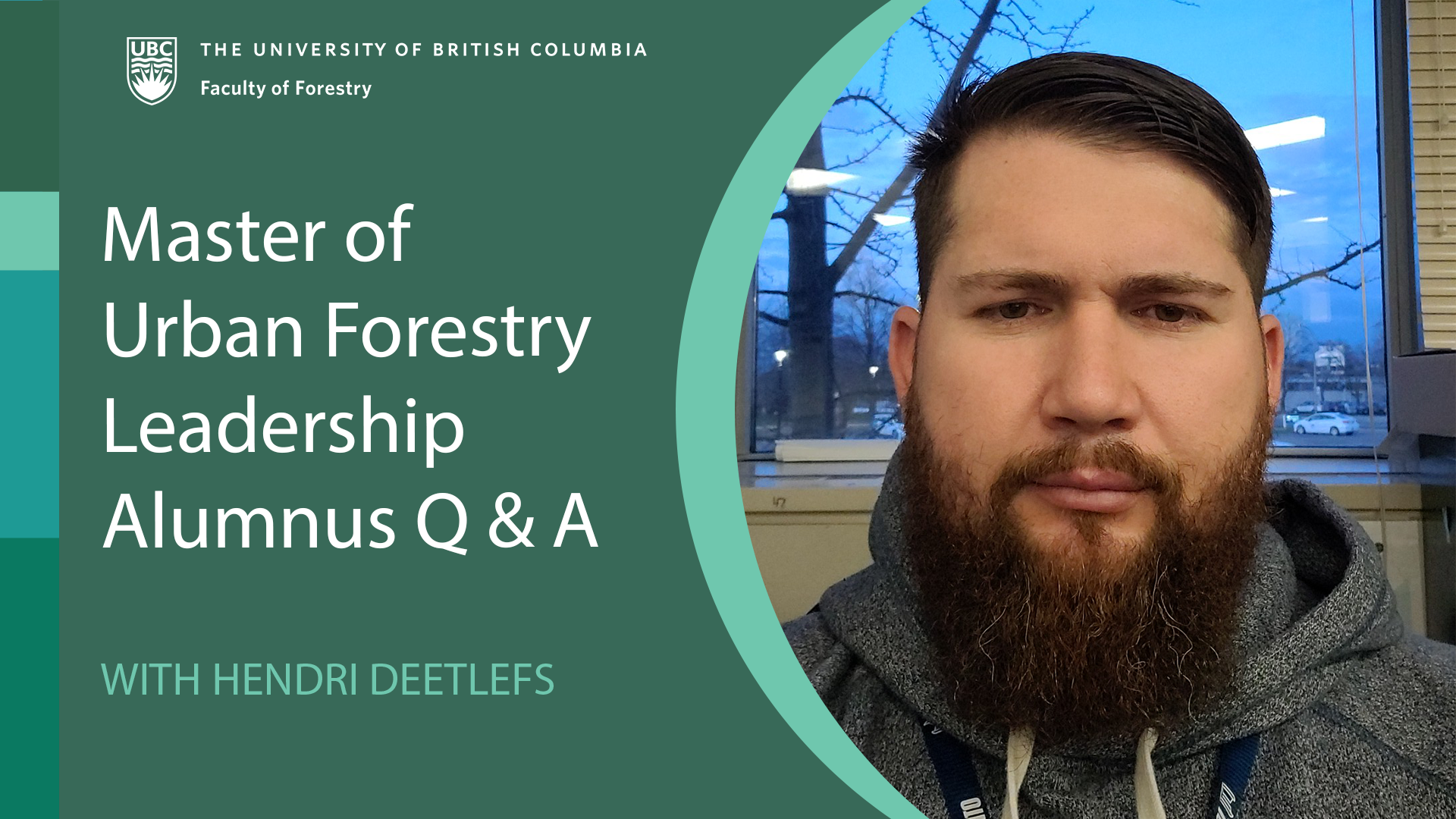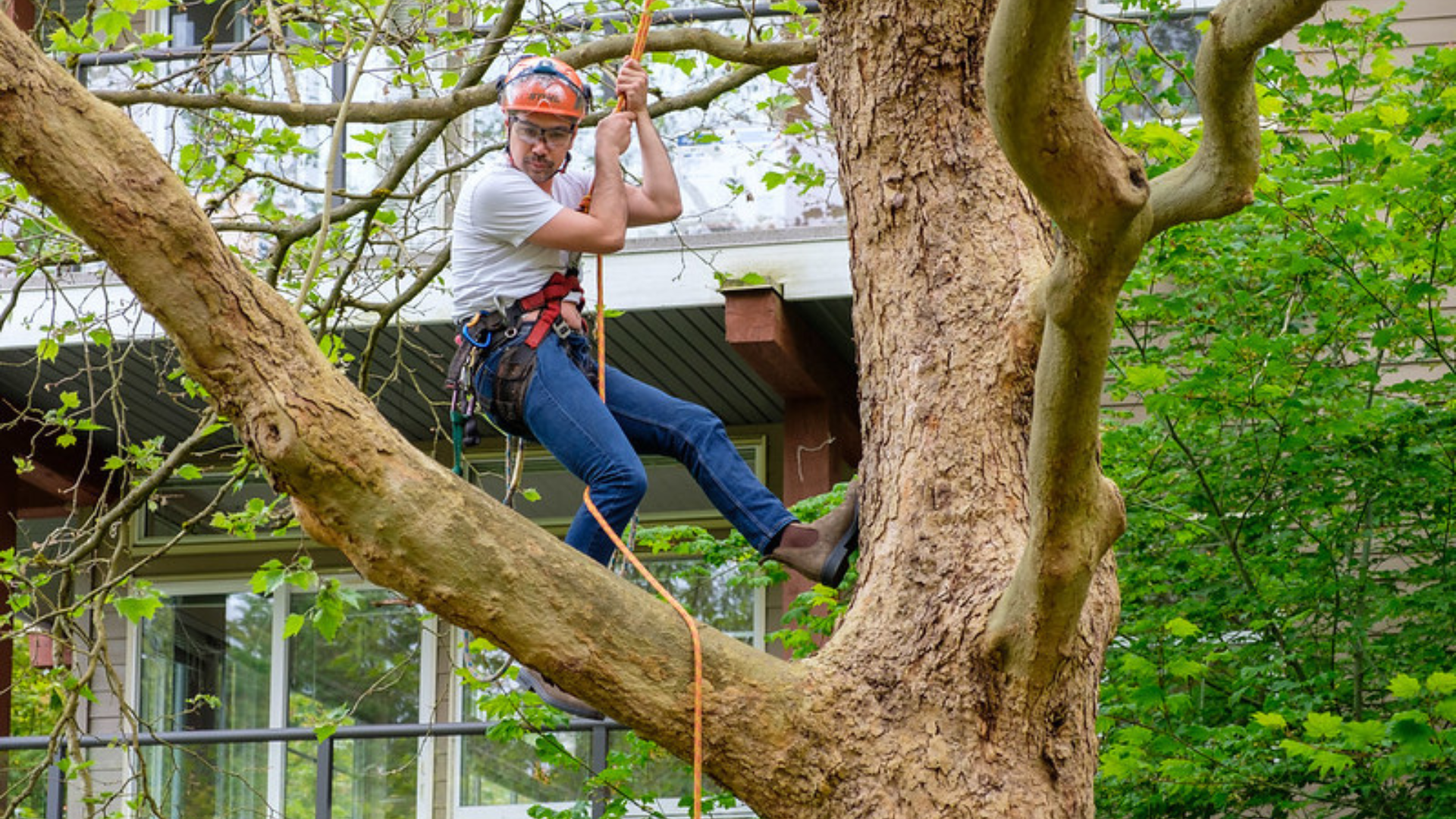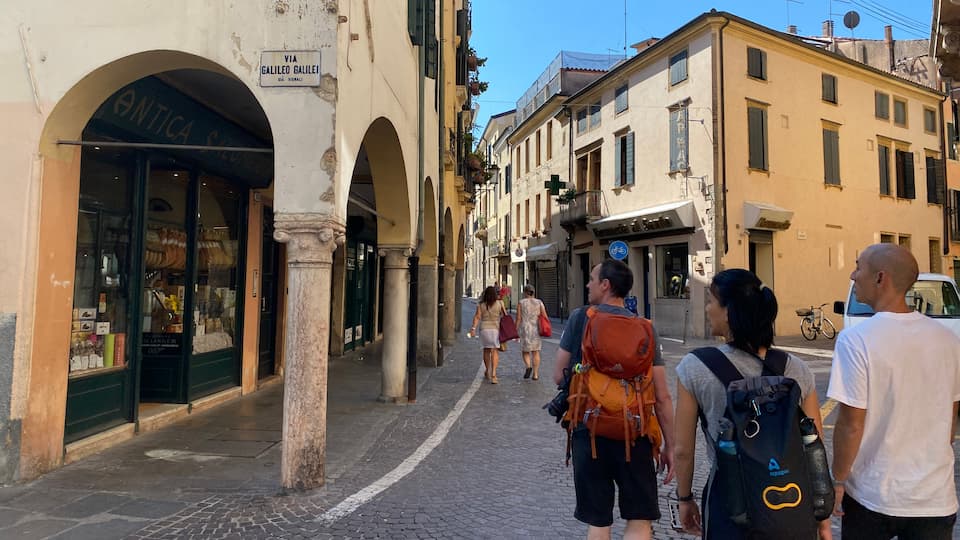Become a leader in Urban Forestry with the Master of Urban Forestry Leadership.
The University of British Columbia’s Master of Urban Forestry Leadership (MUFL) is a comprehensive online 25-month part-time, course-based master’s program that provides an interdisciplinary perspective of urban forestry, with a focus on strategic management, decision-making, and creativity.
Why Choose the MUFL Program?
Meet the growing demand for skilled urban forestry practitioners
Urban forestry is the discipline dedicated to planning, maintaining, and growing urban trees and greenspaces in harmony with human residents. In the face of critical global challenges, the importance of urban forestry has never been more pronounced. Urban areas are rapidly expanding, and the need for skilled professionals in this field is in high demand. UBC Forestry’s Master of Urban Forestry Leadership (MUFL) program steps in to address this shortage of trained professionals.
Develop invaluable skills in leadership and strategic management
Complex problems require creativity, decision-making, and strategic planning: MUFL is poised to develop creative leaders who understand how urban forests enhance cities and who can effectively oversee sustainable urban forestry projects. The MUFL program develops students’ skillsets in balancing the multiple demands on urban forests, and in implementing the latest innovations in planning and assessment that can improve outcomes in urban forest management.
The MUFL Program is offered part-time, allowing you to continue to work and apply your knowledge in your workplace setting.
Learn from (and with) the best in the field
Courses are taught by world-class faculty from UBC’s Faculty of Forestry. Throughout the program, you will interact with and learn from international leaders in urban forestry, including representatives from governments, businesses, academia and non-profits. You will also learn with students from multi-disciplinary backgrounds who are keen to become urban forestry leaders across the world. Alumni are currently working in diverse fields such as: urban forestry, management, environmental planning, private consulting, and education.
Program Learning Outcomes
- Lead urban forestry programs and projects and support interdisciplinary teams.
- Assess the political, governance, legal, administrative, business, and cultural contexts of urban forestry, and connect urban forestry issues to wider government and other agendas.
- Analyze specific challenges and opportunities associated with growing trees and other vegetation in urban areas.
- Compile, use, and present information on key aspects of urban forestry, such as urban forest resources, ecosystem services, arboriculture and urban woodland management, and interactions between people and trees.
- Educate, engage and collaborate with communities and other partners in developing and implementing urban forestry programs and projects.
- Engage with professional urban forestry networks in both local, national and international contexts.

